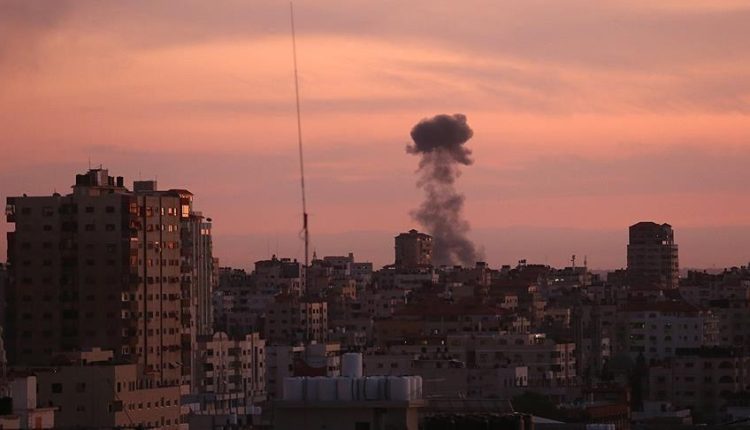Regional and International Powers Condemn Israeli Strike on Syria’s Damascus
By Kardo Roj
DAMASCUS, Syria (North Press) –
The governments of Egypt and Iran strongly condemned an Israeli airstrike on Syrian territory Saturday, which targeted areas near the presidential palace in Damascus. The United Kingdom also issued a cautious response, calling for restraint to avoid further destabilizing the region.
The condemnation follows reports of a significant Israeli air operation that struck multiple locations in and around the Syrian capital, continuing a pattern of attacks that have intensified over the past year. The strike is seen by observers as part of Israel’s ongoing efforts to curb Iranian military entrenchment and arms transfers through Syria.
In a statement on Saturday, Egypt’s Foreign Ministry denounced the Israeli strike as a “new violation” of Syria’s sovereignty. The ministry described the targeted area—close to the presidential palace in Damascus—as particularly sensitive, warning that such actions risk escalating tensions in an already volatile regional context.
Cairo also expressed concern over what it described as the “grave risks” posed by Israeli policies, noting that continued strikes in Syria could ignite broader conflict.
Iran’s Foreign Ministry also issued a strong condemnation, characterizing the Israeli raids as “aggressive” and aimed at “destroying Syria’s defensive and economic infrastructure.” Tehran accused Israel of deliberately weakening Syria’s capabilities as an independent state and of targeting both military and civilian facilities.
In contrast to the stronger rhetoric from regional powers, the United Kingdom issued a more measured statement. The British Foreign Office urged Israel to avoid any actions that could further destabilize Syria, emphasizing the importance of de-escalation amid growing regional tensions.
The statement stopped short of condemning the Israeli strike outright but reflected broader European concerns over continued hostilities between regional rivals on Syrian soil.
Israel has carried out hundreds of airstrikes in Syria since the beginning of the conflict in 2011, primarily targeting Iranian military installations, weapons convoys, and groups backed by Tehran, such as Hezbollah. While Israel rarely acknowledges individual operations, it has repeatedly affirmed its intent to prevent Iran’s military entrenchment near its borders.
The Syrian government, often unable to respond effectively to these strikes, has accused Israel of violating international law and targeting sovereign infrastructure. Despite the condemnations, Israeli operations continue with relative impunity, enabled in part by the broader geopolitical gridlock surrounding the Syrian conflict.
This latest strike comes at a time of heightened regional tensions, as Syria remains a focal point for competing military and political agendas. While the Syrian Democratic Forces (SDF) and the Autonomous Administration of North and East Syria (AANES) continue to focus on securing the northeast and combating terrorist threats, other parts of the country, particularly those under Damascus’ control, face repeated violations of airspace and instability driven by foreign influence.
The repeated targeting of strategic sites in Damascus underscores the fragility of Syria’s central governance and the enduring vulnerabilities posed by external interventions. Observers suggest that unless broader security arrangements are reached, Syria will remain a stage for proxy confrontations.

